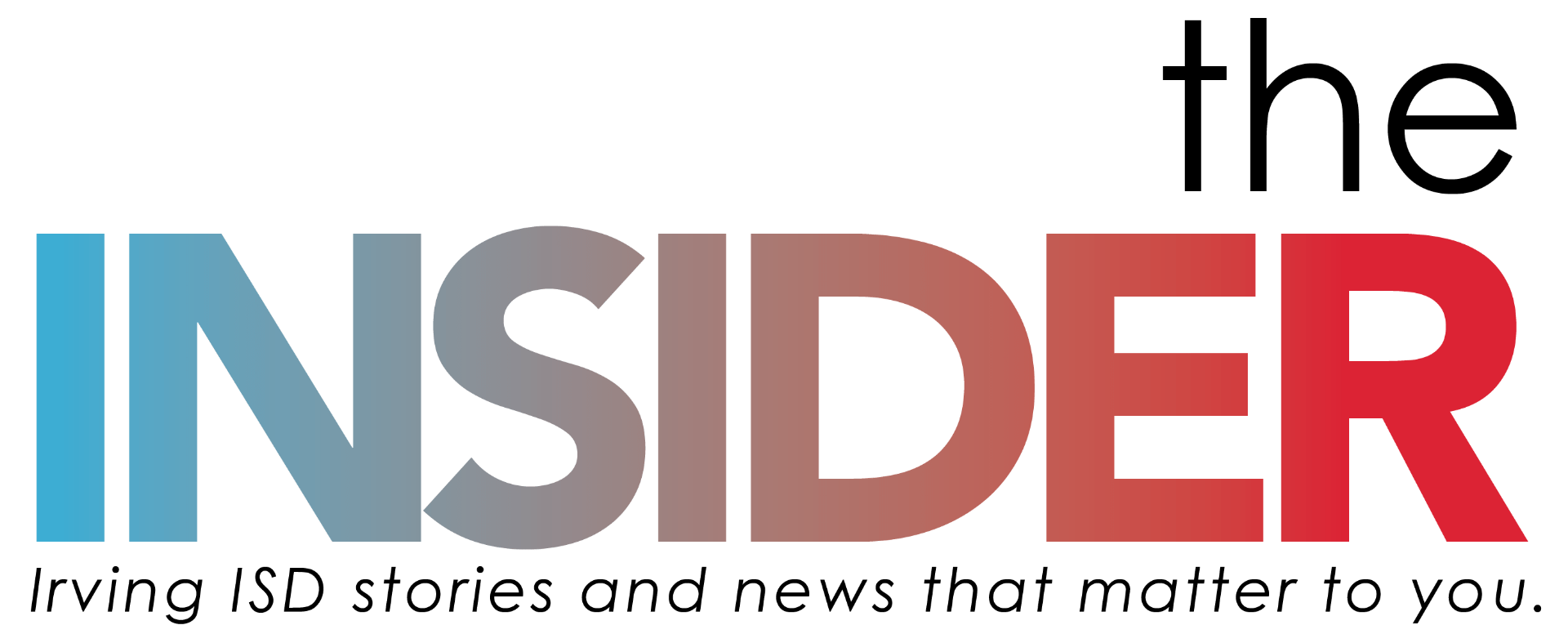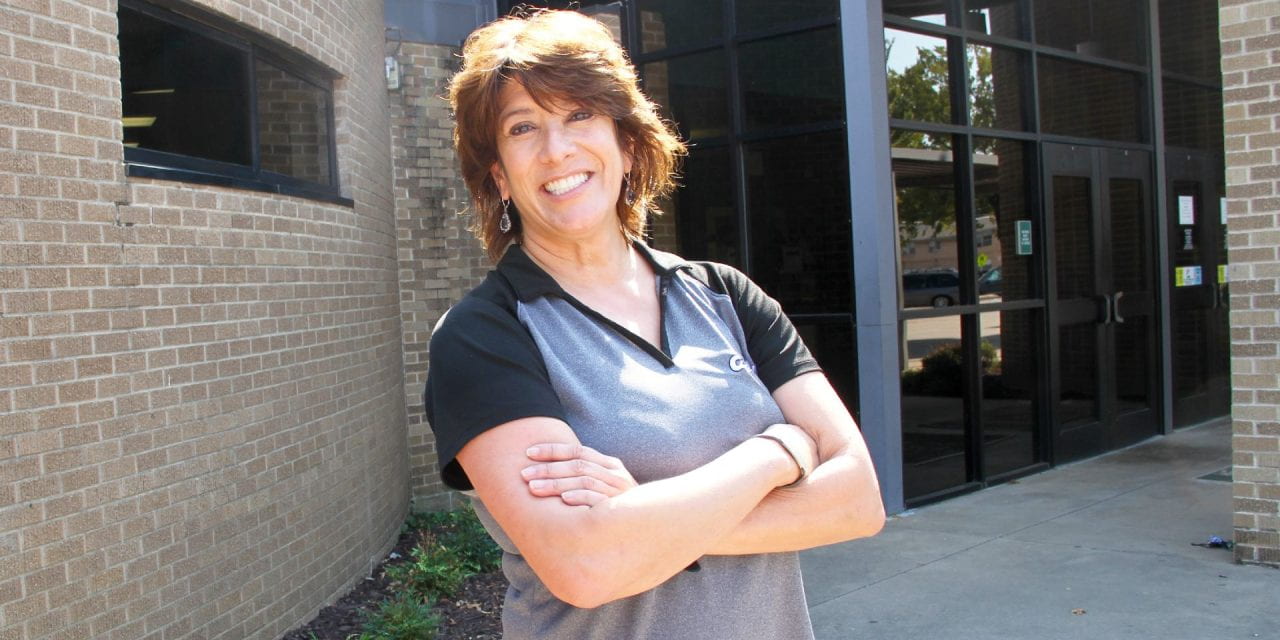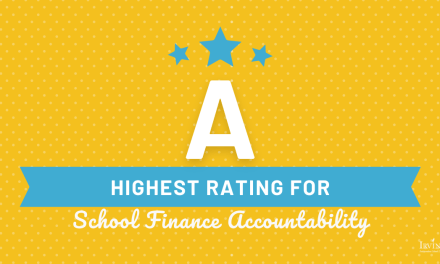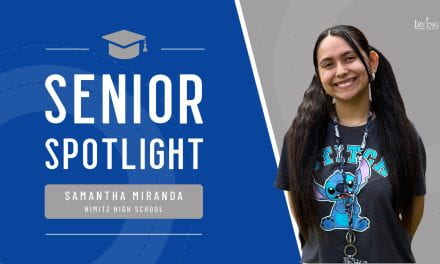If you’re coming into Ms. Diane O’Brien’s sixth-grade math class at Bowie Middle School, be prepared for a hearty welcome from the students. And that’s just the start of what makes this class so special.
The friendly greeting is quickly followed by the students getting back to work.
O’Brien has assigned each student a group, asking them to answer her math questions like “What is the opposite of negative 6?” and “When you are subtracting two integers, what are you actually doing?” In order to answer the question, a group has to act out a pose before they are called upon. The poses are pretty simple and must be agreed upon by everyone in the group. One group raises their hands like a bear claw, another group holds their arms out like an airplane while another group does a salute.
As the groups participate with excitement, you can clearly see a big poster hanging on the wall with the words “Social Contract” at the top. Beneath the title is a list of behaviors like loyalty, active listening, encouragement and no bad vibes. The social contract, developed and signed by the students, is an agreement to uphold certain behaviors deemed important for ensuring everyone in the class feels safe and welcome.
“The social contract is really important,” says O’Brien. “I’ve been teaching for 25 years now and have tried many different ways to deal with conflict. Everyone has bought in.”
The contract is the reason why the students are participating fully in O’Brien’s math activities and why visitors are met with a friendly greeting when they enter.
It’s all thanks to Capturing Kids’ Hearts, a nationally recognized nonprofit organization focused on training educators in social-emotional learning. The training is transformational, relational and timely. It’s exactly what our students are needing, especially in the middle of a pandemic.
O’Brien is just one of 37,000 teachers trained annually on the Capturing Kids’ Hearts curriculum. She, alongside the district’s secondary teachers, attended a two-day training this summer. It wasn’t long before she was completely onboard with Capturing Kids’ Hearts philosophy.
“It builds trust, loyalty, acceptance and belonging, and that’s why I’m doing it,” says O’Brien on the reason she has implemented the curriculum. “And when the students start working together as a team, they recognize they can do more, and it boosts their confidence.”
Once the group activity is finished, O’Brien asks students to turn to their shoulder partner for reflection. Students are asked how they would handle, in the future, a peer who is unwilling to participate or has a bad attitude. Students share that they would ask the student to do the right thing and to find out what was wrong with him/her.
O’Brien closes the reflection by reminding students that their goal in class is to be the best they can be. She encourages them to take care of each other, to work on being empathetic and to have each other’s back.
At the end of the period, O’Brien calls on the “rater,” a chosen student who scores the class on their adherence to the social contract. The student gives the class a 7.5 and references the contract to explain his score.
In unison, they say, “Today is a GREAT day.” The bell rings and the students leave the class with big smiles and friendly waves.






